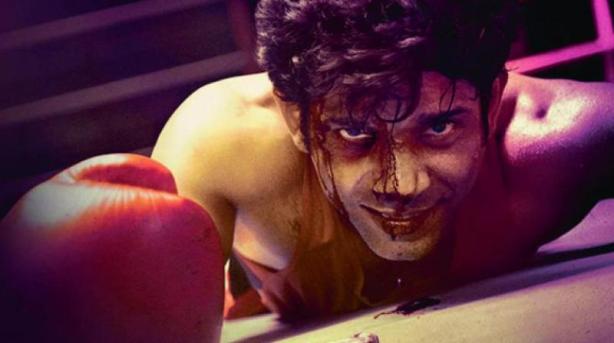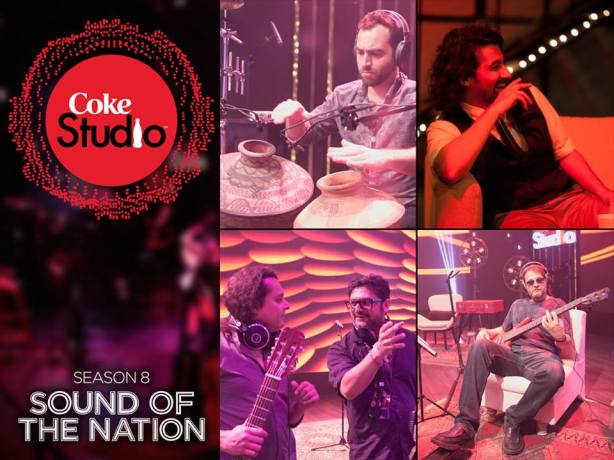
In the last 5 years, 2018 was easily the best when it came to film music. It was also the year in which the drip irrigation music release technique (‘release one song when you want and let them wait for the album’) was at its peak(?). At the time this post is getting baked, albums for the music release of Simmba (to be released on 28 December) and Zero (To be released in 3 days) are yet to hit the music listeners. So Boo you makers! for being so insecure and under-confident about music. I hope some sense penetrates your nonsensical surround sound system you cover yourself with, filled with Yes-men and favour seekers (who can also make a playlist for you, I hear). I have so much to say but I guess we should just get down to the business end now.
We have picked one song per album, a rule I wish I could go around but am thankful it exists. Do suggest your favourites which aren’t on the list for I am sure I have missed some gems. Also, there is a separate Dinchak playlist that would be tagged along with the non film music post.
If you are in no mood to read, just scroll down to play the embedded playlist.
If you just want to have a quick look at the list, here you go.
| No. | Song | Singer | Lyrics | Music |
| 1 | Adhura Main | Deepak Thakur | Vineet Kumar Singh | Vineet Kumar Singh |
| 2 | Aaj Se teri | Arijit Singh | Kausar Munir | Amit Trivedi |
| 3 | Binte Dil | Arijit Singh | A M Turaz | Sanjay Leela Bhansali |
| 4 | Lae Dooba | Sunidhi Chauhan | Manoj Muntashir | Rochak Kohli |
| 5 | Lo Safar Shuru | Jubin Nautiyal | Sayeed Quadri | Mithoon |
|
6
|
Shraddha Mishra |
Faiz Ahmed Faiz
|
Sandesh Shandilya
|
|
| Papon | ||||
| 7 | Ae Watan | Arijit Singh | Gulzar | Shankar ehsaan loy |
| 8 | ishq di baajiyan | Diljit Dosanjh | Gulzar | Shankar ehsaan loy |
| 9 | Saansein | Prateek Kuhad | Prateek Kuhad | Prateek Kuhad |
| 10 | Tera fitoor | Arijit Singh | Kumaar | Himesh Reshammiya |
|
11
|
Jonita Gandhi |
Irshad Kamil
|
Niladri Kumar
|
|
| Arijit Singh | ||||
|
12
|
Ammy Virk |
Shellee
|
Amit Trivedi
|
|
| Shahid Mallaya | ||||
| 13 | Har Har Gange | Arijit Singh | Siddharth-Garima | Sachet-Parampara |
| 14 | Naina Banjare | Arijit Singh | Gulzar | Vishal Bhardwaj |
| 15 | Wo Ladki | Arijit Singh | Jaideep Sahni | Amit Trivedi |
| 16 | Mere naam tu | Abhay Jodhpurkar | Irshad Kamil | Ajay Atul |
Adhura main – Being a fan of Deepak’s Harmonium accompanied voice since humnee ke chhori ke, it was easy to love this earthy song with emotions spilling all over the senses. Vineet, the composer and lyricist, has summarised the entire struggle in this fabulous song. You cannot listen to this song on repeat, that is how devastating it is.
Aaj se teri – Endearing, melodious, rich, simple and filled with love.
Binte dil – Though I am madly in love with Nainowaale ne and Ghoomar, I just couldn’t get beyond this mad mad song that has everything and a little more. Of course the song is composed and written very well, but for me, the refreshing whiff is Arijit‘s effortless singing. Those who tell you they loved Ranveer Singh because of ‘khali bali’, are actually thinking of this song. Yep.
Lae dooba – A song filled with Shiv Kumar Batalvi‘s mainu tera shabaab lae baitha vibe, Lae dooba gave us Sunidhi Chauhan the way we are almost forgetting she can touch your soul.
Lo safar shuru ho gaya – When Mithoon composes happy romantic songs without the Aashiqui-sque familiarity, such pleasant songs emerge and boy what a delight they are!
Raat yun dil mein – The first duet I liked this year. I dislike romantic songs but when Faiz is done right, it feels…Jaise beemar ko…bewajah qaraar aaye..The song cures you of ailments you didn’t know you had.
Ae watan – A song in 2018 that celebrates ‘desh prem‘ subtly, a rare event these days. Pahuchu mein jahan bhi meri buniyaad rahe tu. Though towards the end of the song, I felt like I am listening to the end notes of ‘Noor e khuda’, it only made me love the song more.
Ishq di baajiyan – Though I didn’t enjoy the backup vocalists going a bit too hard on ‘door na jaa’, S.E.L.’s masterstroke of using Shankar Mahadevan‘s voice smartly did me in. Though it is the least ‘repeated’ song this year amongst all here, how can you not fall for Diljit Dosanjh’s charming voice?
Saansein – Main apne hee mann ka hausla hu, Hai soya jahan par mein jaga hu..Main peeli seher ka nasha hu…Main madhosh tha..ab main yahan hu. Prateek Kuhad, you beauty!
Tera fitoor – There is always time for an old fashioned, non autotuned fantastically composed romantic song from Himesh Reshamaiyya isn’t it? I don’t care how the video is, I love this song a bit too much for my own good I guess. Arijit Singh, are you human?
Ahista Ahista – Laila Majnu, the album delighted me in ways that A.R. Rahman’s albums used to. There is too much to thank this album for and I choose Ahista Ahista for the playlist. Irshad Kamil has penned easily the best film song of the year here. Doori ye kam hee na ho, main neendo mein bhi chal raha. Truly a song worth dying for.
Daryaa – Mannmarziyaan was no Dev D, still it came dangerously close and broke everything that came its way this year. Both versions of this song are super good, still I feel the rush much more thanks to Ammy Virk‘s version. I could write pages about the way Ammy makes me soar. Most importantly, don’t forget – Shellee.
Har har gange – The most intense yet calm song of the year. Off late, We seem to hardly get spirituality right in Hindi films, let alone music. This is a beautiful exception. Tera karm hee hai jo sang tere hee jaaye. No intellectualising, just a simple message, delivered simply. Arijit singh, I love you.
Naina Banjare – I was so tempted to put the title song here, still this mad song took the better of me. Giri re giri babua, beech bajaare. Did you notice Arijit call Naina as Nahena…?
Wo ladki – The overarching tune, magnificent composition, irresistible singing and what atmosphere! Amit Trivedi, the dominator of the year!
Mere Naam tu – The only reason I have not put any song of Dhadak is because even the title song (which wasn’t as embarrassing as other ‘dubbed’ songs) had the stamp of Ajay Atul and you could predict the pace and sound of the song. This one however, has a ‘Jaadu teri nazar’ madness and that with the confident Abhay Jodhpurkar on the microphone is just too difficult to put away. Lastly and most importantly, Irshad Kamil. Yep.
P.S. – I feel compelled to mention a few more things here.
Genres that Hindi film music touched this year which I absolutely loved:
Friendship – Tera yaar hu main from Sonu ke Titu ki Sweety – If that horrible qawwali detour wouldn’t have existed in the song, this would have made it on the list above. Still, a good addition to the genre.
Sensuous done right – Mujhe Chaand pe le chalo – A.R. Rahman misses a lot and hits far too few off late. Nikita Gandhi and Irshad Kamil ensured this one is a hit and boy does it stay hit! (With No-hea Kakkar-isation of every song these days, it is difficult to extract real emotions from the barrage of autotune-ness these days…and this is why, Mujhe chaand pe le chalo feels even more delicious).
Inquilaab – Azaad Kar – The film had other gems as well but somehow it was reassuring to hear a wistful Swanand Kirkire pay tribute to times we are living in.
Me, as I am – Tere jaisa tu hai – I love the song but for occasional shrillness. What I absolutely love are the opening lines. Hear them again if you cannot recall them.
Kashmir – Katyo Chukho – It would have been unfair to ‘trap’ this song in the main list above. This is the best song I have heard this year and this is a song for which I would always be thankful to the makers of Laila Majnu. They gave me Alif. A song to live by and die to. It is what Channa vey wanted to and what Agar tum saath ho was.
Infinite Joy (a.k.a. Bitiya rani) – I cried all 3 times that I saw the song on screen. Yep, this one. What brilliant work by Sunny Bawra-Inder Bawra, Kumaar and of course Shubha Mudgal.
2018 – One of the most difficult years to make this playlist and am glad it was so.

 “
“




